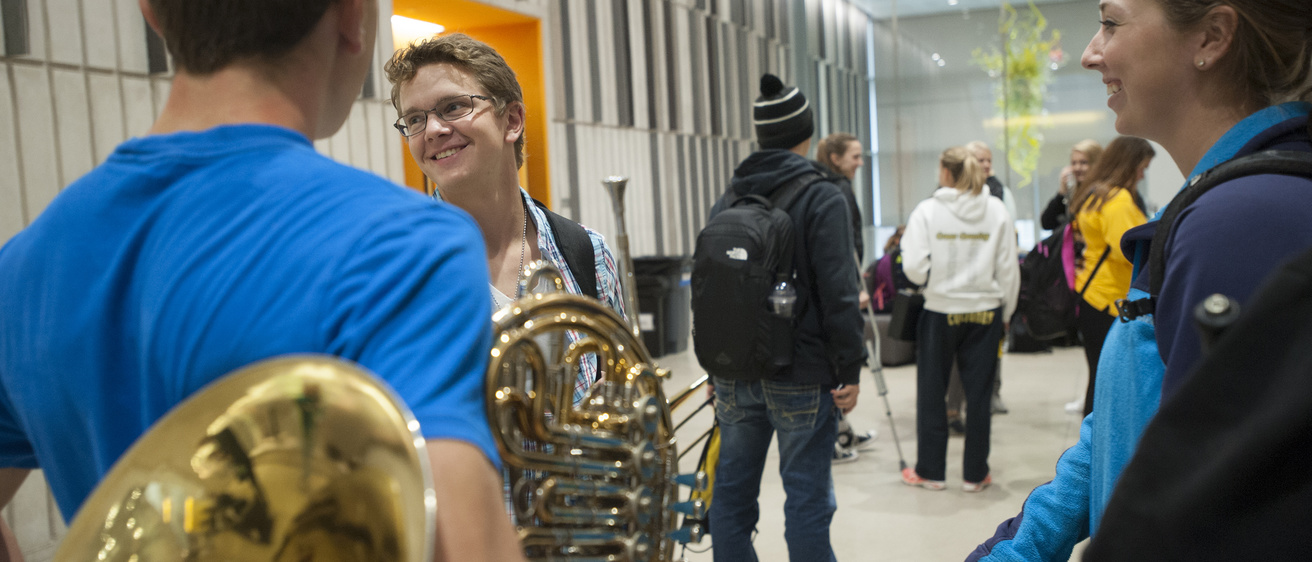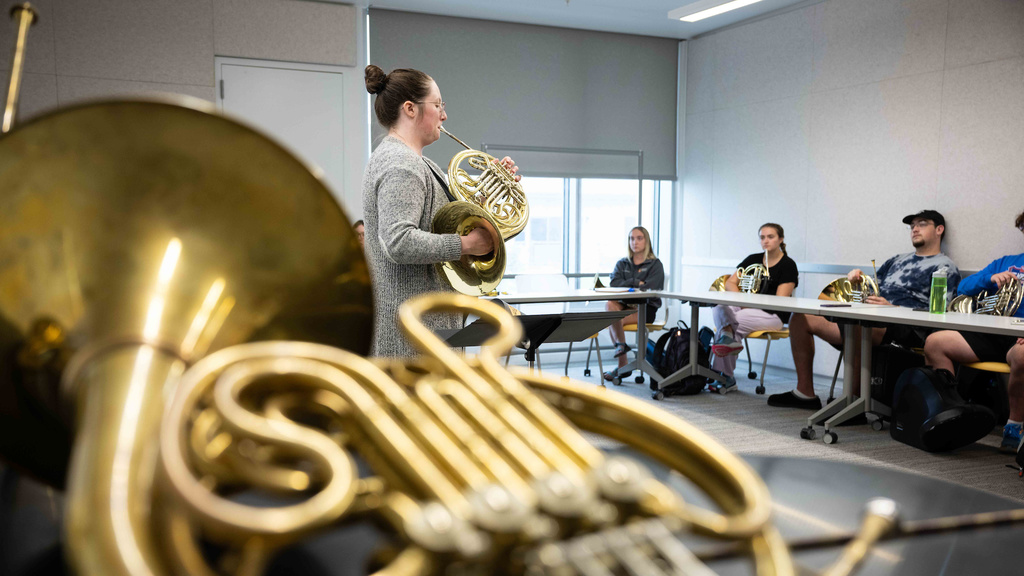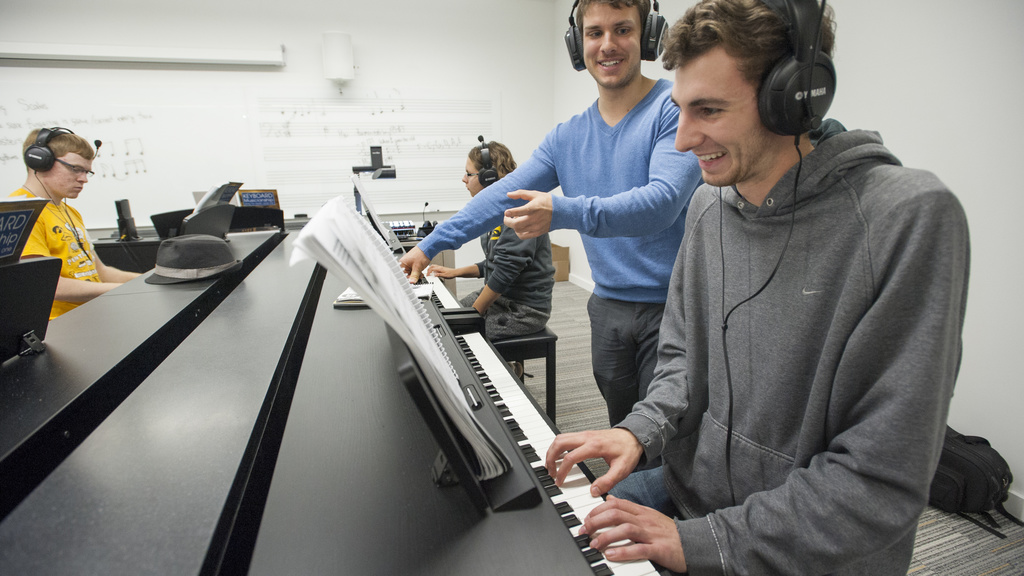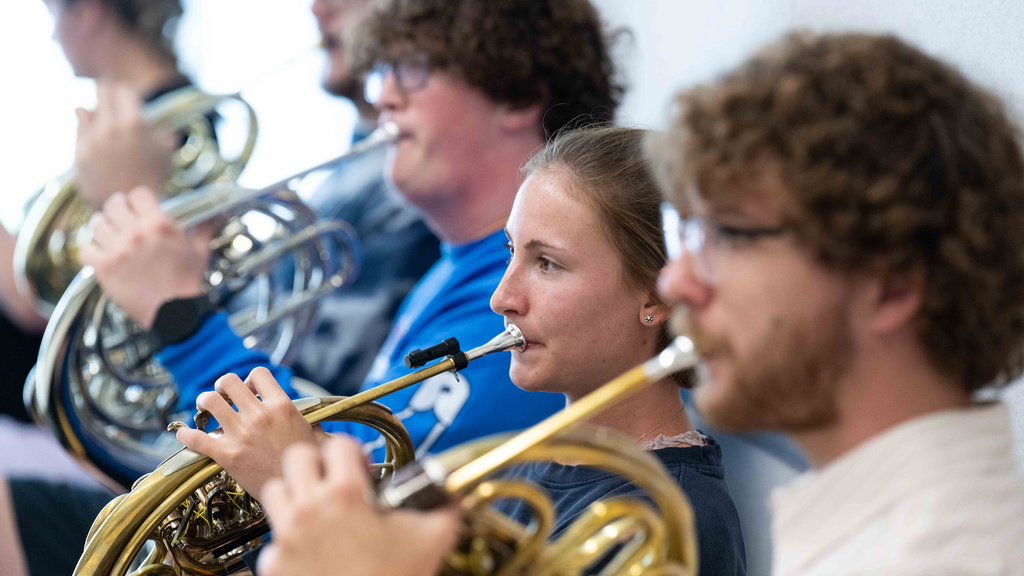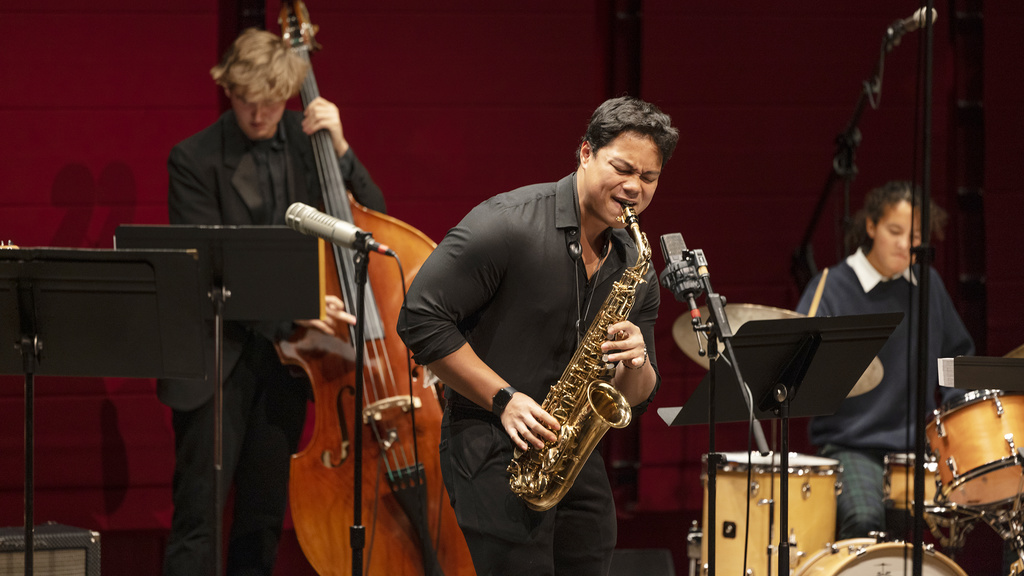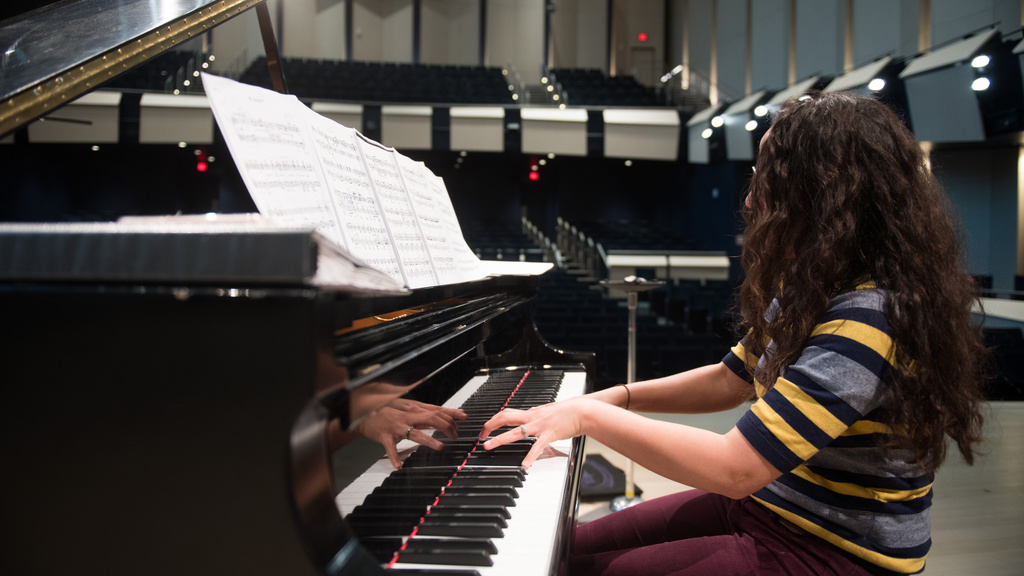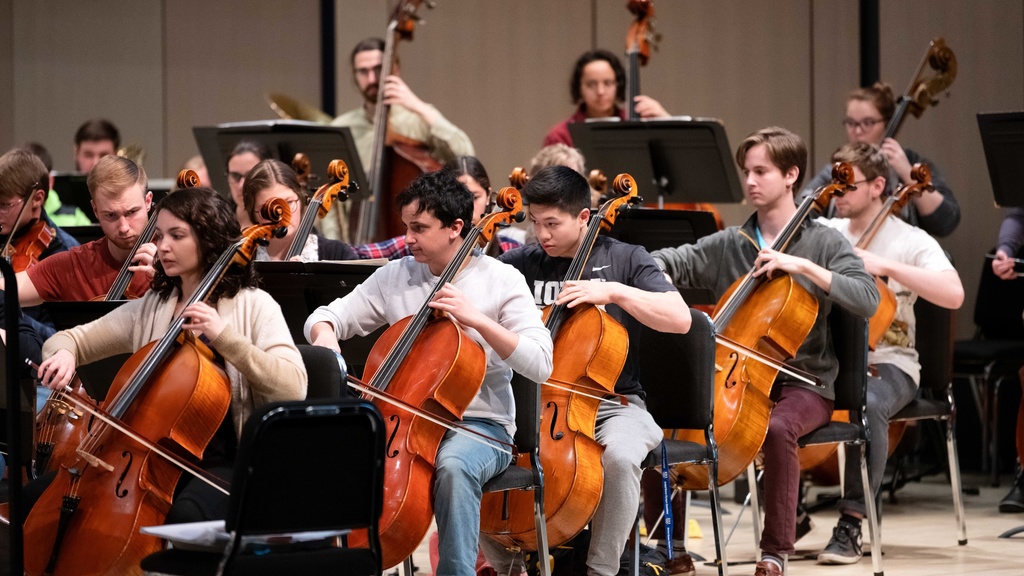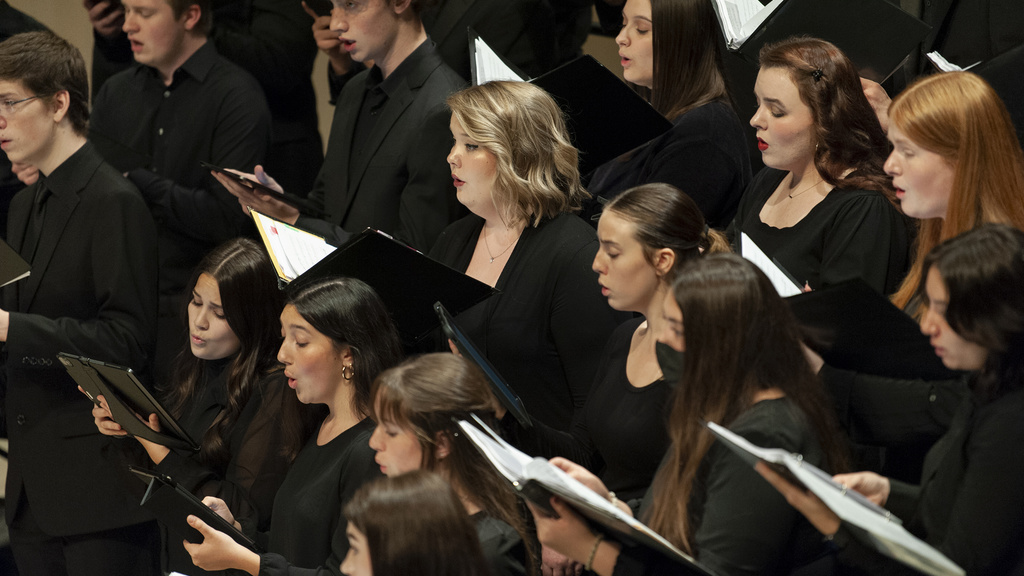Main navigation
You've found your musical community. Now let's build your career.
Imagine playing your music for a living. Or being a composer or a music teacher or a music therapist. We can get you there.
Or maybe you want to study science or business or creative writing, or one of the 200+ other majors at Iowa—while making sure that your music is always at the heart of your life. We can get you there, too.
Explore undergraduate programs
Bachelor of Music programs
Your professors, your fellow student artists, and the audiences who fill our concert halls will understand your passion for music—and they'll support you every step of the way as you develop your talent, build your foundation, and launch your career.
As a music major, you'll work closely with a professor in what we call a "studio," along with other students who play your instrument. You'll collaborate with students from all different backgrounds, and perform in state-of-the-art concert halls in the amazing Voxman Music Building, right in the center of downtown Iowa City.
You've worked hard. You're ready for this. Join our Music at Iowa community and watch how far you'll go.
350 +
Why study music at Iowa?
Do you dream of a career as a performer or a composer? Do you want to teach music to K-12 kids? Are you interested in music therapy? You can reach these goals with a Bachelor of Music major, in which you'll choose a concentration in performance, composition, music education, or music therapy.
Do you want to build a career outside of music, but always have music be part of your life? Or bring music into your career in unexpected and innovative ways? The Bachelor of Arts major is for you. We make it easy to add a second major to your BA in Music—you can create your own individualized educational experience by combining the study of music with any of Iowa's 200+ other majors.
Whichever path you choose, your music will be at the heart of a well-rounded education that will prepare you for any career.
Music for non-majors
The School of Music offers a wide range of dynamic and engaging courses for non-music majors, including jazz, music and culture, music history, music technology, and more. Students from across the university can enroll in private lessons or participate in ensembles, including University Band, All-University String Orchestra, University Choir, and the 240-member Hawkeye Marching Band (one of the UI’s largest student organizations). Non-majors are welcome to audition for all School of Music performance opportunities.
Recommended courses
| Course number | name | semester hours |
|---|---|---|
| MUS:1000 | First Year Seminar | 1 |
| MUS:1001 | Group Piano I: Non-Music* | 1 |
| MUS:1002 | Group Piano II: Non-Music | 1 |
| MUS:1007 | Garage Band | 2 |
| MUS:1009 | Jazz Cultures in America and Abroad | 3 |
| MUS:1010 | Recital Attendance for Non-Majors | 1 |
| MUS:1020 | Performance Instruction for Non-Majors | 1 |
| MUS:1100 | Fundamentals of Music for Non-Majors | 3 |
| MUS:1301 | Concepts and Contexts of Western Music | 3 |
| MUS:1302 | Great Musicians | 3 |
| MUS:1303 | History of Popular Music | 3 |
| MUS:1310 | World Music | 3 |
| MUS:1720 | History of Jazz | 3 |
| MUS:1800 | World of the Beatles | 3 |
| MUS:2311 | Music of Latin America and the Caribbean | 3 |
*This course is available for nonmajors who wish to develop elementary performance skills for personal musical growth and enjoyment.
Participation in School of Music ensembles is open to all university students with the ensemble director's approval.
Applied music instruction is offered to nonmajors as instructors are available. Nonmajors interested in registering for MUS:1020 Performance Instruction for Non-Majors should consult music advisers.
For more information contact the Music Academic Office at 319-335-1604, or music-admissions@uiowa.edu.
Private lessons
Non-major lessons are offered under the course number MUS:1020. Individual lessons consist of a weekly one half-hour lesson working with a graduate teaching assistant and a group seminar.
Registration is under separate section numbers for bassoon, cello, clarinet, composition, euphonium, flute, horn, oboe, organ, percussion, piano, saxophone, string bass, trombone, trumpet, tuba, viola, violin, and voice.
For more information and/or permission to register contact the listed supervisor of the instrument of interest.
